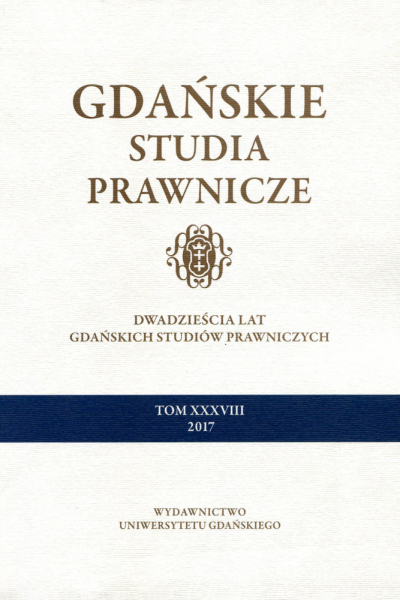Kamienie milowe w rozwoju historycznym polskiego prawa umów
Milestones in the Historical Development of the Polish
Contract Law
Author(s): Magdalena KonopackaSubject(s): History of Law, Law on Economics
Published by: Wydawnictwo Uniwersytetu Gdańskiego
Summary/Abstract: The article traces back the origins of the Polish contract law, reaching as far as the XIIIcentury traditional land sale contracts (separate resignatio and intromissio often accompaniedby a set of gestures and customary acts). The earliest codification attempts, namelythe German, Latin and Polish language Elblag Book, or the first codification entirely inPolish - Statutes of Casimir the Great - date back to the XVth c., but concentrate mainly onthe organization of courts as well as criminal law and procedure.Contract law forms part of German law reception artifacts, namely the Sachsenspiegel(mainly into the so-called Sroda law) and the Magdeburg Weichbild (into Chelm law).Special attention is paid to the significant role of Hanseatic Gdansk, whose six collectionsof merchant law from XV through XVIII c. are renowned for their novelty and abundance.Royal privileges, eg. Privilegia Casimiriana 1454-1477 or Statuta Sigismundi 1526 empoweredthe citizens and merchants of Gdansk, granting the town both inland and overseastrade monopoly (especially for forest products) and enabling the city council to issue regulations(eg. around 1530, regulating specific contracts, such as the freight contract).With partitions of Polish territory a phenomenon of partial integration of Polish lawwith Western standards was observed: the Napoleonic Code Civil, BGB and ABGB (withtheir enlightened concepts of pacta sunt servanda, freedom of contract and elements ofgood faith largely supported by courts) were in force in the territories occupied by the respectiveworld powers at the time, along with the Russian provenience Svod Zakonov (inthe Russia-controlled “Polish Kingdom”) whose remnants obviously did not survive themodern codification effort taken up after WWI.The civilized, democratic and liberal Polish Code of Obligations 1933, based both onFrench and German legal traditions with the most modern Swiss Code 1912, was the greatestcontract law unification attempt after Hanza and before the EU (with its consumer protectionand private codifications such as the PECL or DCFR). Sadly, its lofty ideals did notsurvive the communist razor - the 1964 Civil Code admonished so many exceptions to theprinciple of equality of parties bargaining power, that the latter practically ceased to exist.
Journal: Gdańskie Studia Prawnicze
- Issue Year: 2017
- Issue No: XXXVIII
- Page Range: 309-324
- Page Count: 16
- Language: Polish

